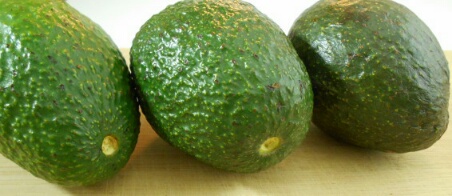
N U T R I T I O N
Minerals
Homepage
P O T A S S I U M
Potassium is an essential nutrient that is naturally present in many foods and can be bought as a dietary supplement. Women and men require 4700mg of this nutrient daily.
Potassium is a mineral electrolyte; and is one of the most important electrolytes in the human body, with others including chloride, calcium, phosphorus, magnesium and sodium. Because it is an electrolyte, it is important for proper functioning of all of your body's cells, tissues and organs.
Most potassium is inside cells with some outside cells, and this difference forms a transmembrane electrochemical gradient that is maintained with the sodium-potassium (Na+/K+).
Potassium is also important for healthy nerve transmission, muscle contraction, and kidney function. Ninety percent of ingested potassium is used to maintain its normal intracellular and extracellular concentrations.
In healthy individuals with normal kidney function, abnormally low or high blood levels of potassium are rare.
The kidneys are able to adjust potassium intakes in healthy individuals, but a minimum of 5 mmol (about 195 mg) potassium is lost each day in urine. Because of this, as well as other required losses, the intakes must be 400-800mg daily to achieve potassium balance.
Normal serum concentrations of potassium range from about 3.6 to 5.0 mmol/L. Certain health conditions can lower or raise potassium levels.
These can include: diarrhea, vomiting, kidney disease, use of certain medications, and any condition that alters potassium or causes change in transcellular potassium.
Adults in North America consume less potassium than recommended and should get more in their diet.
A balance of sodium and potassium is important for your body's electrolyte functions. As your body strives to maintain this balance, you can reduce high sodium intake by consuming more potassium.
Too much sodium on a continual basis can also affect your blood pressure. Getting additional potassium in your daily diet can maintain a healthy blood pressure or lower it to a healthier level.
Foods
All food groups contain some potassium, so you likely don't need supplements if you eat a balanced and varied diet. Vegetables, fruits and dairy products provide the richest supply of dietary potassium.
Particularly good sources include bananas (1 banana 12% rdi), orange juice (1 cup 11% rdi)avocados,(1 medium 20% rdi) tomatoes, cooked spinach (1 cup 18% rdi), potatoes baked with eating skin (1 large baked 30% rdi), sweet potato (1 large 18% rdi), lima beans, salmon, cod, chicken and most meats.
Other sources of potassium include white beans, halibut, plain white yogurt (11% rdi) broccoli, cantaloupe, lentils (1 cup 18% rdi), pistachios, raisins, and pomegranate, coconut water (13% rdi 1 cup)
Potassium facilitates to control the amount of water in your body and maintain a healthy blood pH level. Because you lose electrolytes in your sweat, you should replenish these required minerals during or after a good physical workout.
Potassium is mostly excreted in the urine, some in the stool, and as mentioned body sweat.
Goto: Vitamins and Minerals
YOU MAY LIKE:
Free Android Wine App
White Wines:Chardonnay, Chenin, Pinot Grigio, Sauvignon Blanc
Develop Android Apps - Free Tutorials Click Here
You May Also Like:
Make Sushi At Home | ProTips Photography |